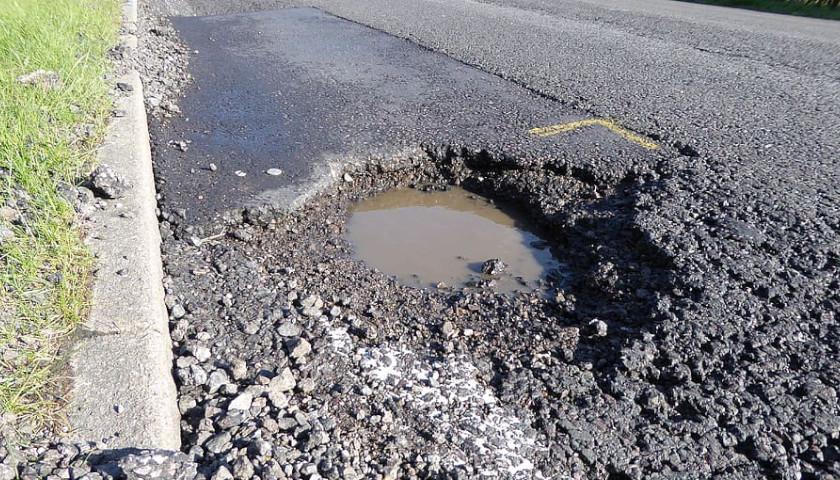by Scott McClallen
A new report found Michigan’s infrastructure is generally “worse than the national averages” and is a factor of statewide population loss.
The infrastructure problems range from road pavement quality to unreliable electricity causing frequent, long power outages, to outdated water infrastructure such as sanitary sewers, stormwater and flood control.
The Citizens Research Council of Michigan report said efforts to attract residents from other states are “stymied in part by poorly maintained infrastructure, which is generally worse than national averages and surrounding states.”
The report found other states are surpassing Michigan in vital measurements. The Wolverine State ranked in the bottom third of national rankings, including 34th in household income and 36th in K-12 education outcomes.
“Our natural resources can play a key role in reshaping the state’s communities and economy for the future,” CRCM President Eric Lupher said in a statement. “Public policies should emphasize sustainable development, environmental remediation and protection to promote population health and well-being. We believe these are the kind of public policies that will retain current and attract new Michiganders to our workforce, schools and communities.”
A previous report estimated another 270,000 people will leave the state by 2050. The report found Michigan’s population growth is one-third of the national average.
Eric Paul Dennis, a research associate for the organization, said Michigan underfunds its road system by between $4 billion and $7 billion annually.
“On national highway system routes, Michigan ranks 47th in pavement quality, well below the average state, and worse than all nearby states,” Dennis said.
The report recommends new fees to fund roads because despite more road funding, “Michigan’s pavement conditions are not clearly improving.”
Michigan ranks in the bottom 10 states for electricity reliability.
“It’s critical to improve Michigan’s electric grid reliability to get a handle on these power outages and to do so without substantial rate increases, but this will be complicated by efforts to move away from fossil fuels such as natural gas both for home use and electricity generation,” Dennis said.
The report said new and increased vehicle and fuel fees could fund fixing the roads. Michigan’s highways are the fourth worst in the nation, while its locally maintained roads are in even worse condition. In 2019, Gov. Gretchen Whitmer proposed a 45-cent-per-gallon tax tax to fix the roads, which failed.
The Michigan Department of Transportation is responsible for Michigan’s nearly 10,000-mile state highway system, comprised of all M, I and US routes.
Michigan has the sixth-highest total tax on gas in the country, 28.6 cents per gallon, plus 6% sales tax and the 18.4 cent federal tax. Other possible solutions include toll roads or increasing fees on electric vehicles, which drive on Michigan roads but pay less in gas taxes compared to drivers of gas vehicles.
The report series began in May 2023 by addressing Michigan’s population challenges. The reports show ways Michigan can attract residents. The last paper will be released at the end of September 2023.
– – –
Scott McClallen is a staff writer covering Michigan and Minnesota for The Center Square. A graduate of Hillsdale College, his work has appeared on Forbes.com and FEE.org. Previously, he worked as a financial analyst at Pepsi. In 2021, he published a book on technology and privacy. He co-hosts the weekly Michigan in Focus podcast.





